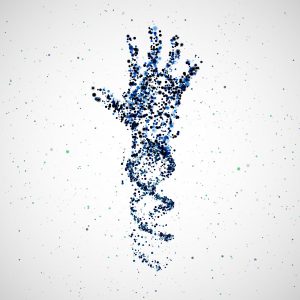Anyone who has ever watched an episode of CSI or Law & Order can appreciate that estimating the time of death in a murder is a difficult task. There are many methods, such as body temperature, stage of body decomposition and other biochemical indicators, but a precise approximation of the period of time since death, or postmortem interval (PMI), remains elusive.
 But that might be changing, thanks to a newly discovered set of genes that are upregulated, or made active, after death. In their recent study, Peter Noble and colleagues at the University of Washington used RNA sequencing to identify this gene signature. Surprisingly, there are over 500 of these active “zombie” genes in both the mouse and zebrafish models at 48 and 96 hours postmortem, respectively. Noble dubbed these genes the thanatotranscriptome from the Greek prefix thanato, meaning death along with the well-known transcriptome, or set of genes that are expressed.
But that might be changing, thanks to a newly discovered set of genes that are upregulated, or made active, after death. In their recent study, Peter Noble and colleagues at the University of Washington used RNA sequencing to identify this gene signature. Surprisingly, there are over 500 of these active “zombie” genes in both the mouse and zebrafish models at 48 and 96 hours postmortem, respectively. Noble dubbed these genes the thanatotranscriptome from the Greek prefix thanato, meaning death along with the well-known transcriptome, or set of genes that are expressed.
Not all active genes were helpful in predicting the time elapsed after death, however. They found that using only about 11 zebrafish genes and 14 mouse genes gave them the best prediction. Though both brain and liver samples were tested, liver genes seemed to be a more reliable predictor of time elapsed after death, despite more brain genes being active.
Additionally, this work may help to determine if organs are viable for transplantation: Some zombie genes might act as biomarkers for how well a transplantation might go. Those who receive transplants from the deceased have been shown to be at a higher risk for cancer, which might be explained by the fact that some of these recently identified zombie genes are also known to promote cancer growth.
It should be noted that this preliminary study was published on bioRXiv, a preprint database to allow work to be seen and commented on before peer review. While we’re waiting for the final version, we can all rest assured that even though some of our genes might come alive after death, this new research does not herald the real-life version of The Walking Dead. Now, we can start to ask questions about how and why genetic zombies activate and persist. This study proves that death — or at least undead genes — might be able to teach us a lot about life.